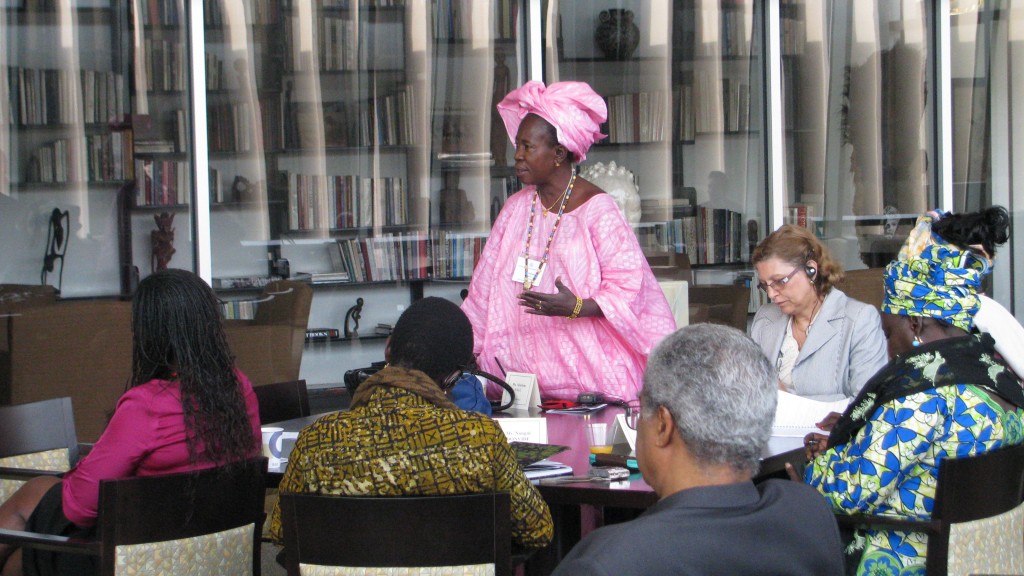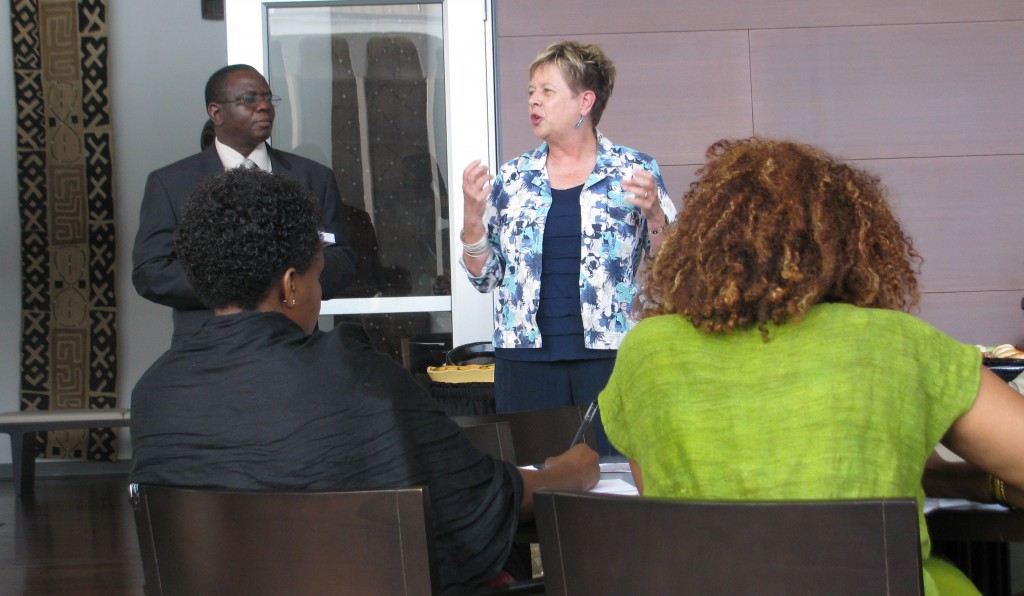The California African American Political and Economic Institute (CAAPEI) at California State University, Dominguez Hills and the University Library hosted a breakfast on Tuesday, June 12, for 15 African businesswomen visiting the United States as part of the U.S. Department of State’s African Women’s Entrepreneurship Program (AWEP).

Hailing from 10 African countries, the women entrepreneurs have businesses in the garment and fashion industries in their respective countries and are traveling throughout the U.S. to network and learn best practices from industry professionals here, as well as meet with government, business and education leaders to gain insight on how to navigate the export market and sell their products to a wider audience. They are among 47 women in the U.S. through AWEP, now in its third year. While in Los Angeles, this smaller group also toured the L.A. Fashion District and the Fashion Institute of Art and Design, among other places.
The breakfast at CSU Dominguez Hills was organized by CAAPEI director and associate dean of the College of Arts and Humanities Munashe Furusa in collaboration with the International Visitors Council of Los Angeles, which was hosting the group. The women met with Al Washington, executive director of the Africa-USA International Chamber of Commerce and Industry, Sadie Kimbrew, president and founder of the Carson Black Chamber of Commerce, Chamber member Mary Truitt (Class of ’80, B.A., business administration) and James Burks, director of special projects for the City of Los Angeles Department of Cultural Affairs and president of the annual African Marketplace and Cultural Faire.
Commenting on Africa’s recognition of the growing impact the African Diaspora has on Africa, and programs such as AWEP that seek to empower women to expand their role in their countries’ economies, Burks said “It’s important that we created these kinds of global economies so that you as young female entrepreneurs will fit into that economy. And as you move further and move through the process of building your company [it’s important] that [you’re] building relationships with those who are in the U.S., talking about distribution; those of you in the textile industry are talking about designing textiles and maybe creating a market, and actually…selling them around the world.”
That’s exactly what Tanya Aab is hoping to do. A fashion designer from Swaziland who specializes in “upcycling” recycled materials in her designs.
“I’m looking for connections to exports and to establish relationships with the United States –I feel I’m export ready–and also materials that I could possibly gain on the upcycle story,” she said.
Hers was a similar story among the women, who said they too were eager to build or expand the exporting of their products.

Kaye Bragg, acting dean of the College of Business Administration and Public Policy, who has worked for 25 years with women entrepreneurs in the Asia-Pacific rim, advised the women to think small and identify one or two items that they want to market first and build from there. She also encouraged the women to seek collaborations among nonprofit non-governmental organizations (NGOs) and government agencies, and, to take advantage of the contacts they meet while in the in the U.S., including not just the business world but universities, as well. Offering up the university’s many resources of faculty experts and students looking for experience, Bragg said, “We could work together to set up and work with you in developing, through internship, through students working with you, a business plan, a marketing plan, that strategic planning of ‘what do I do to be successful?’”